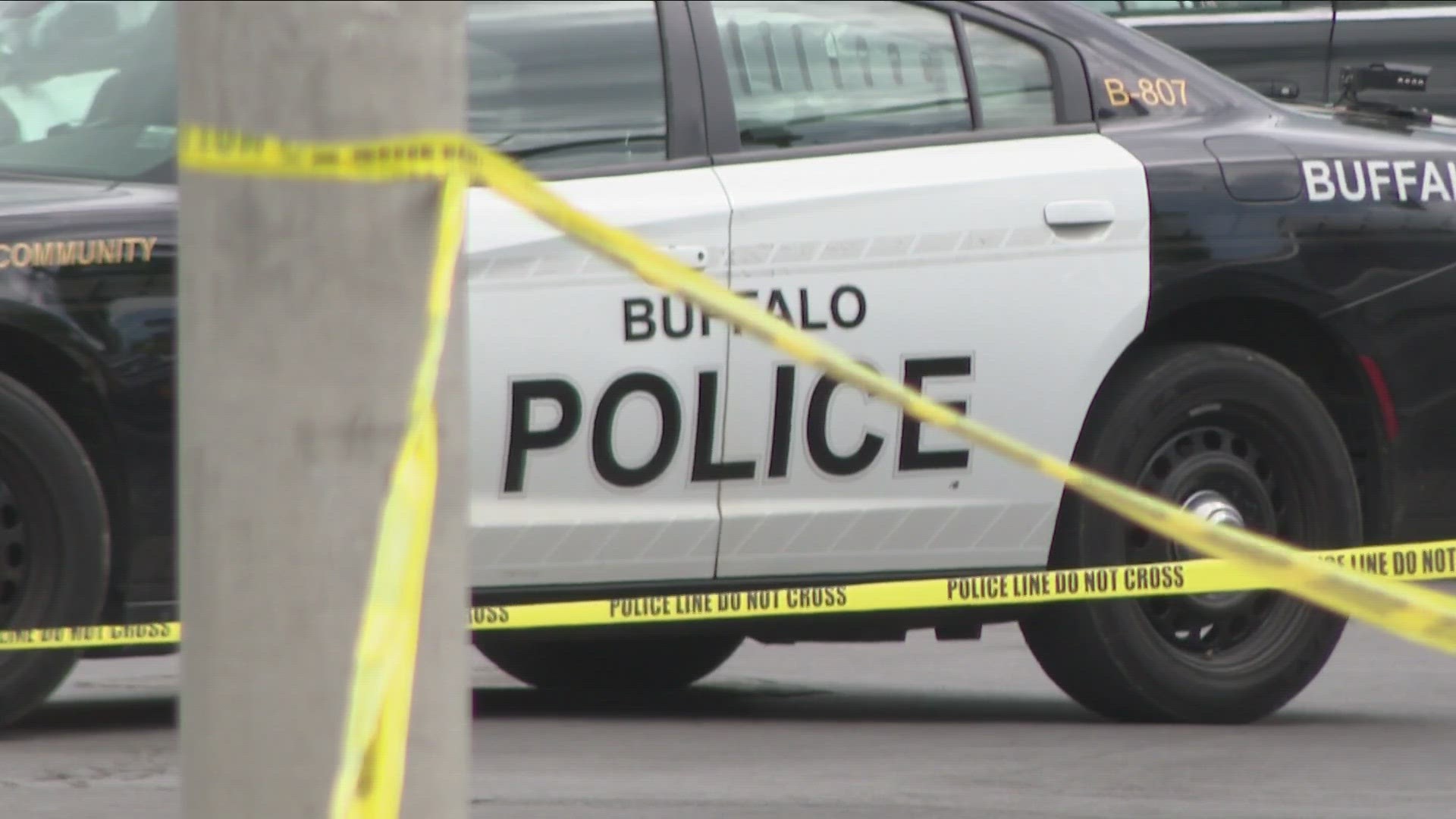BUFFALO, N.Y. — As we prepare to mark one year since the the Tops Market shooting last May 14, many people are still trying to comprehend the events of that day. That especially includes first responders, who had to handle the emotional trauma they personally encountered that day.
Megan Andrews is director of the Employee Assistance Program of the Children & Family Services. She says, "We have to acknowldge that this weekend is going to be challenging for the Buffalo community. The Buffalo Community experienced the unimaginable."
A heavy load of emotional experience falls especially on men and women we count on to go in first and respond. They see what we don't see behind yellow crime scene tape.
Buffalo Police Commissioner Joseph Gramaglia told 2 On Your Side: "I was in that parking lot, and I actually watched, one of of our officers had to be led out of that scene because he knew people that were in that store. And who was there to get him out of there? A peer team member."
He added: "Our homicide squad and our evidence collection team, they tend to be forgotten as well, and they see the worst of the worst, and they're there for a long period of time, dealing with these scenes."
Those peer team members were spotlighted last week by Gramaglia as he spoke of "mental fitness" for police officers in his department.
They are really colleague counselors as other cops, firefighters, and EMS personnel who just better understand.
Andrews explains: "We're able to tell our story to a peer more quickly than we can to someone who is an outsider. Sometimes that is the most helpful experience that can happen to someone who is looking to heal."
Obviously first responders must compartmentalize on scene just like a doctor or nurse in an emergency room.
Andrews observes: "It's a coping skill. Absolutely it's a coping skill. It is a recognition that in order to do our job we need to put this (emotional distress and trauma) aside for a moment. But what we do is we need to re-address that. We need to address that at some point."
Leonard Lane is now President of Buffalo Fathers, but he is also a retired Buffalo firefighter who understands all too well.
"A lot of firefighters are affected when that is over. The next day, the next week, the next month, even the next year, from what they've seen. And how they could have responded differently. I think that we sometimes go over that within our minds if we could have done something different to save these lives."
Combat veterans' flashbacks introduced studies of Post Traumatic Stress Syndrome. When this condition is left untreated it can cause mental anguish. Some of those who suffer numb the pain with substance abuse or even unfortunately suicide.
So Andrews stresses the need to build an "emotional tool kit. Making sure you exercise. Making sure you go out and you laugh, and you connect with people that you love and that care about you. Being with people who have had similar experiences, that's a powerful, powerful way to kind of connect and reprocess this information and help people manage and cope."
This may sound like common sense. But it's crucial to make sure first responders don't bottle it up inside. That includes firefighters who were there on 5/14 to help treat victims in the supermarket as EMTs or emergency medical technicians or paramedics.
The Children and Family Services agency serves in the Employee Assistance Program for the City of Buffalo.

